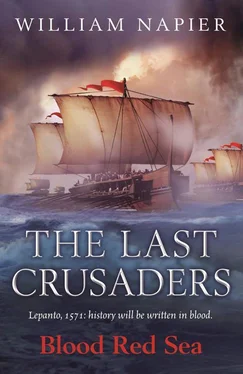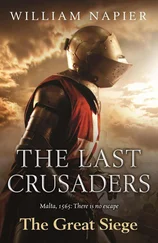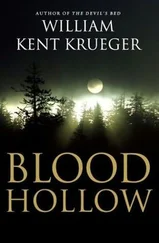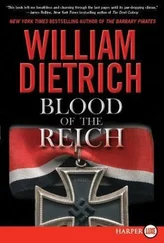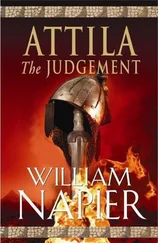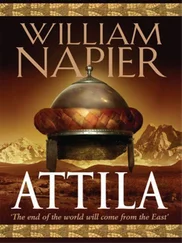William Napier - Blood Red Sea
Здесь есть возможность читать онлайн «William Napier - Blood Red Sea» весь текст электронной книги совершенно бесплатно (целиком полную версию без сокращений). В некоторых случаях можно слушать аудио, скачать через торрент в формате fb2 и присутствует краткое содержание. Жанр: Исторические приключения, на английском языке. Описание произведения, (предисловие) а так же отзывы посетителей доступны на портале библиотеки ЛибКат.
- Название:Blood Red Sea
- Автор:
- Жанр:
- Год:неизвестен
- ISBN:нет данных
- Рейтинг книги:4 / 5. Голосов: 1
-
Избранное:Добавить в избранное
- Отзывы:
-
Ваша оценка:
- 80
- 1
- 2
- 3
- 4
- 5
Blood Red Sea: краткое содержание, описание и аннотация
Предлагаем к чтению аннотацию, описание, краткое содержание или предисловие (зависит от того, что написал сам автор книги «Blood Red Sea»). Если вы не нашли необходимую информацию о книге — напишите в комментариях, мы постараемся отыскать её.
Blood Red Sea — читать онлайн бесплатно полную книгу (весь текст) целиком
Ниже представлен текст книги, разбитый по страницам. Система сохранения места последней прочитанной страницы, позволяет с удобством читать онлайн бесплатно книгу «Blood Red Sea», без необходимости каждый раз заново искать на чём Вы остановились. Поставьте закладку, и сможете в любой момент перейти на страницу, на которой закончили чтение.
Интервал:
Закладка:
‘Sire!’ came a cry. ‘Turkish galleys have broken through! They are behind our lines!’
Lighter in the water and shallow draughted as they were, four or five Turkish galleys had slipped through between the Christian line and Scropha Point.
‘Kill them!’ cried Ambrosio Bragadino. ‘Kill them all!’
6
As soon as the Turkish galleys were behind the Christian line they turned again and bore into the hard-pressed centre, guns ready loaded, gunners exultant. Suddenly the galleys under the command of Don John of Austria, already outnumbered by an enemy that attacked them fore, found themselves fired upon from behind as well. The most unnerving experience for any fighting men, on land or at sea.
‘They have come through! We are surrounded!’
On the battered galley of Sebastiano Veniero, twice holed in her hull but still afloat and mobile, one Spanish pikeman, a lad of no more than eighteen, snatched off his helmet and began to unbuckle his breastplate, ready to throw himself over the side and swim for the Greek shore. This battle was as good as lost.
In a trice, the point of Veniero’s sword was at his throat. The lad felt its startling pressure just under his Adam’s apple. The old Venetian sea dog glowered at him from beneath snowy-white eyebrows.
‘Armour stays on, lad. You stay fighting. Or I will kill you where you stand.’
Grapeshot from a nearby fusta raked over the deck, men ducked, pellets clanged and ricocheted off steel helmets and brass fittings. But Veniero did not move. The whole volcanic force of his will was bent on this one trembling soldier, and this example before his men. The lad rebuckled his breastplate with clumsy fingers, set his helmet back on his head, and took up his pike.
Veniero turned and gave fresh orders to his captain. ‘Make for the centre, at all speed! Master gunner, clear our way! La Real needs us!’
In the reserve squadron, the Marqués de Santa Cruz kept an eagle eye on the progress of the battle at all points. He was aware of the Turkish breakthrough below Scropha Point even before the Bragadino brothers heard of it, and immediately sent six of his strongest galleys to face them. They raced across the rear of their own lines at exhausting ramming speed, the wretched oar slaves lashed by the boatswain and his hated wetted rope-end, yet soon past feeling any pain other than their own arms and hearts and lungs, burning fit to burst. Such a speed could not be maintained for more than three or four hundred yards. Yet they closed on the rogue Turkish galleys over five hundred yards, six hundred. . A slave collapsed over the oar, blood pouring from his nose and mouth. Mariners unshackled him and pulled him free, dropped him in the bilge, face up out of kindness. Others groaned and pulled onwards.
They hit the five Turkish galleys from behind, firing at close quarters and very low to ensure they hit only the enemy and not their own. Despite the exhaustion and sickness of the slaves, the marines and pikemen aboard were fresh for the fight, and amid the chaos, Santa Cruz’s six galleys made short work of the Turkish five, sinking all but one of them, raking the other clean of soldiers and gunners at close range and then firing her. They pulled back slowly enough for the Spanish pikemen to lean over the sides and skewer enemy soldiers and sailors where they swam, bewildered and bleeding, through the smoking wreckage of their own galleys.
The Bragadino brothers closed up hard against the rocky shore, even as one, two of their own galleys were grounded on submerged rocks. The Turks too suffered grounding, their galleys suddenly groaning and tilting, the sound of twisted and tormented timbers ripped asunder adding to the general din.
It was only aboard one single Ottoman galley that it happened, yet it was the catalyst for what came next: a galley called the Star of Antioch happened to have a complement of oar slaves made up entirely of Christian captives rather than Muslim criminals. Their boatswain was particularly cruel, even by usual galley standards, and had laughingly sodomized one of their number only two days before the battle, when he discovered he was a novice monk.
‘And so white of skin!’ he roared as he worked, to the cheers of his mariners.
One of the oar slaves, a blacksmith by trade, had managed to break free of his chains. Now in the deafening press of battle, the Star of Antioch closely engaged with a Christian galley and every mariner and fighting man up on deck, the blacksmith hurriedly broke off the shackles of his fellow slaves with a boathook, biceps bulging, veins like pulsating cords. Moments later, led by this redoubtable blacksmith armed with his boathook, the slaves swarmed up from the benches on to the fighting deck. The mariners and soldiers, already holding off an attempted boarding by Spanish pikemen, were aghast to find themselves attacked from behind by a filthy, howling horde of their own slaves, half starved, skeletal thin, infested with lice and covered in sores, yet suddenly given a terrifying new strength by that strongest of instincts in the human heart: revenge.
There was wild butchery for a few moments, and then the greater part of the Turkish soldiery threw down their weapons and hurled themselves into the sea. Some of the slaves were so maddened by bloodlust that they instantly leapt after them, to stab them or drown them in the foaming, reddening water.
A neighbouring Turkish galley heard the desperate cries, saw their comrades abandoning ship and swimming for the Greek shore — Turkish territory, after all, and safety — and in a mass panic that can so easily take hold among exhausted and frightened men, did likewise.
‘Abandon ship!’
The cry spread like a contagion in crowded streets, and soon the Turks were abandoning their galleys all along the line.
The guns on all sides were firing less now, some having cracked, some simply too hot to work, and the scene became clearer to the commanding Bragadino brothers.
‘To the longboats, all swordsmen, all pikemen!’ they ordered. ‘Press after them hard! Let not one escape!’
They went after them crying ‘For Famagusta!’ They rowed over them and drowned them, they trapped them in the shallows or on the very shoreline, trampled over them and butchered them where they lay.
‘There is not enough sea,’ said one pikeman, ‘to wash this much blood away.’
But in the centre, the crux of the battle, it was going much worse for the Holy League.
Every man capable of wielding a sword or a pike held the line around La Real . Don John had given orders for the oar slaves to quit their benches and find arms of any kind, and they fought with the crew and soldiers in gallant comradeship. But with three enemy galleys surrounding her, it was desperate.
Yet again, Nicholas knew what it was like to be under siege from vastly superior forces.
The roar of cannon, the crashing and sundering of ships, oars snapping like whipcracks, the hiss and thock of arrows, the ships’ sides bristling like a porcupine. Cries and shouts, grenades and splashes, bombs and fire pots, and everywhere the gritty black billowing smoke. You could drown in another man’s blood, and men’s eyes showed as no more than bloodshot balls in a mask of soot.
A Spanish arquebusier crawled up on to the roof of the stern cabin to try to give fire over the heads of his comrades, but was immediately struck down by flights of arrows from the Turkish rigging. La Real ’s mast was cracked and fallen. From the stores were dragged up makeshift wooden pavisades, covered in fat and oil, and used to build up the sides of the ship.
Something detonated below. They could not even be sure in the chaos whether they were hit, whether it was a powder keg going up, or what. Perhaps La Real was sinking under their feet even as they fought to the death for her.
Читать дальшеИнтервал:
Закладка:
Похожие книги на «Blood Red Sea»
Представляем Вашему вниманию похожие книги на «Blood Red Sea» списком для выбора. Мы отобрали схожую по названию и смыслу литературу в надежде предоставить читателям больше вариантов отыскать новые, интересные, ещё непрочитанные произведения.
Обсуждение, отзывы о книге «Blood Red Sea» и просто собственные мнения читателей. Оставьте ваши комментарии, напишите, что Вы думаете о произведении, его смысле или главных героях. Укажите что конкретно понравилось, а что нет, и почему Вы так считаете.
